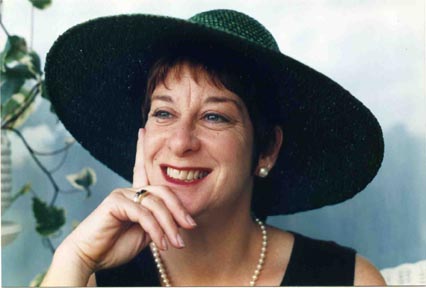Friday, March 06, 2015
Aves of Auschwitz - A Visual Poem Commemorating the 70th Anniversary of Its Liberation by Soviet Soldiers
Wednesday, April 09, 2014
Poetry Month Event
Wednesday, September 26, 2012
Coexist: A poem, a prayer on Yom Kippur 5773
On this holy of holiest days in the Jewish religion, Yom Kippur 5773, I pray for outstanding human development and evolution, a quantum leap, that puts an end to the madness of war raged in the name of religion. May we each be peacefully free to attend to the matters of our spirit in any way as long as it extends respect and peace to others.
Tradition has it that on this day, Jewish people gather together in the community of their loved ones for a day of fasting, remembrance, and atonement. At sunset we break the fast together in joy and anticipation of new, good year to come. Today I fast alone and instead, put together a community of you who are so dear to my heart.You are Jews, Christians, atheists, and others. You live around the globe, but most importantly, in my heart. If I could pluck religion from the equation you are the ones I'd prefer to spend today with, in reflection and conversation. A gathering with you each, with you all would make a fine party indeed.
So, on this Yom Kippur I pray for our ultimate human enlightenment. For a time when the world is free of the tyranny of oppression. Where each individual is truly free to practice her/his beliefs in peace so long as they do no harm to others. This is how I've decided to spend my holy day.
This morning, spent in quiet contemplation, I wrote a poem that explains how my soul that has been in mourning is now free as well. I should consider myself blessed to find another soul who wishes to walk along life's path with me in close harmony.
May your autumn be filled with the fruits of the harvest!
-->
Saturday, April 02, 2011
April is National Poetry Month

©2008 Susan Schaefer
Ode To April
Trickster month
begins with
a fool’s day,
ends with
the greatest passion play
of a cross on Calvary
or
the parting of the Red Sea.
Cruelest month?
when buds and babes
push up and out
and rain falls,
and breezes beckon,
and renewal calls.
Here,
in the Northern Hemisphere,
April brings
the hope of spring.
- © 2011 Susan Schaefer
Inaugurated by the Academy of American Poets in 1996, National Poetry Month is now held every April. It is a time when publishers, booksellers, literary organizations, libraries, schools and poets around the country band together to celebrate poetry and its vital place in American culture. Thousands of businesses and non-profit organizations participate through readings, festivals, book displays, workshops, and other events.
Our neighbors in Miami-Dade country are going all out this April with their O, Miami poetry festival. O, Miami is a countywide, month-long series of events and projects with the simple goal of every person in Miami-Dade County finding a poem. Mixing traditional readings with innovative poetry-in-public-places projects, the festival will weave poetry into the fabric of the city’s existing infrastructure and cultural life. Events will be conducted in multiple languages, sometimes simultaneously, often in collaboration with other cultural organizations. O, Miami culminates in a four-day series of readings from April 27-30, 2011 at the Frank Gehry-designed New World Symphony Hall on Miami Beach.
Of all things said about writers, perhaps the single greatest compliment would be that: “she or he writes like a poet.” Why? Because there is simply no other written form that is based chiefly upon the economy of language that distinguishes good from great writing. The language of a poem should be like an energy saving appliance: good for the ‘written’ environment.
Of course, there are plenty of bad poets and poems, but by its essential nature, a poem should be tightly constructed, using few but well chosen words to convey a powerful feeling or moment in time. A great poem should transport the reader to experience an intense or pleasurable emotion, like great music does, or being in love, or the sight of a lovely flower unfolding.
Many of us naturally assume that a poem must rhyme simply because from childhood we have been entertained with rhymed verse. Think of Mother Goose rhymes, like the childhood classic: “Jack and Jill went up the hill….” This type of poem is called “closed: it is subject to a fixed structure and pattern.” However, legitimate poetry can be “free verse, with no prescribed pattern or structure.”
Please take a minute to read a favorite poem. Try reading it aloud. Share it with a child, a friend, or an elder who might enjoy being read to. Attend a reading or buy a volume of poems. In these days of daunting economics and news, what could be better than simply messing about with a written verse?








